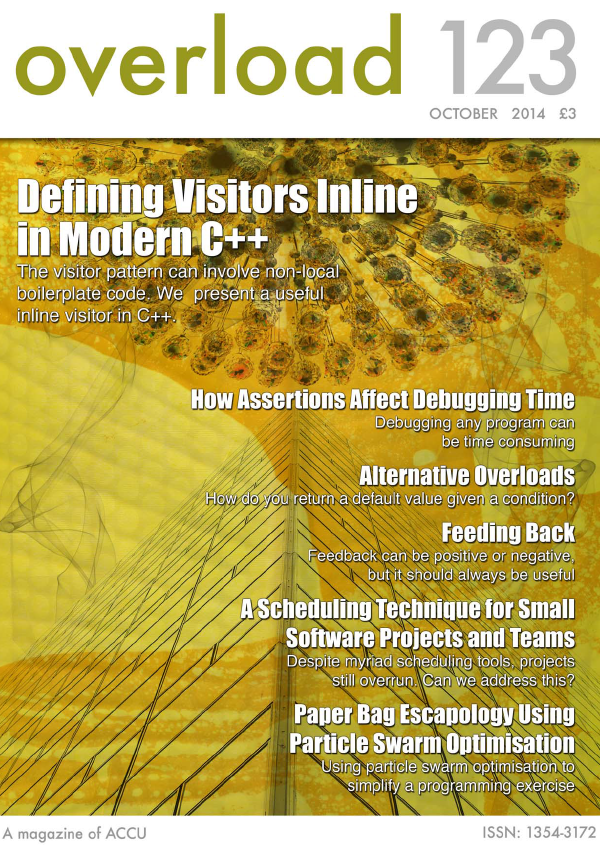N4220: An update to the preprocessor specification (rev. 2) -- David Krauss
A new WG21 paper is available. If you are not a committee member, please use the comments section below or the std-proposals forum for public discussion.
Document number: N4220
Date: 2014-10-10
An update to the preprocessor specification (rev. 2)
by David Krauss
Excerpt:
This proposal updates the preprocessor specification to remove undefined behavior, missing specifications, and possible contradictions, and to better document implementation differences. It resolves CWG DR 268, 366, 897, 1436, 1625, 1698, 1709, 1718, and 1882. Issues related to universal-character-names are not addressed here, but in N4219.

 Overload 123 is now available. It contains the following C++-related articles, and more:
Overload 123 is now available. It contains the following C++-related articles, and more: